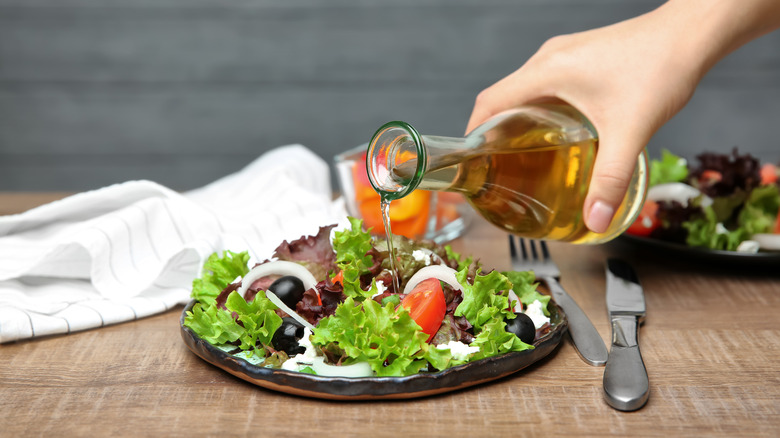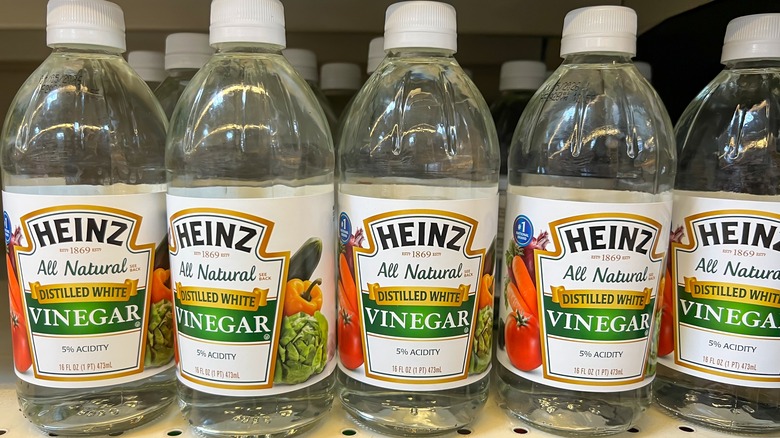The Type Of Vinegar You Should Avoid When Finishing Dishes
From waking up salads to finishing dishes with a punch, vinegar is a stealth MVP in the kitchen. Salt has a well-deserved reputation as being the most essential way to season a dish, but vinegar is almost as important for bringing out the flavor. Like salt, the acid in the vinegar helps balance out foods by counteracting bitterness, and it adds a pleasant sourness all its own, helping more bland recipes hit every aspect of taste. Be it in the form of vinegar, lemon juice, or garlic, acidic ingredients also highlight the other flavors in your cooking. When you add a dash of malt vinegar to a stew, you don't actually sense much vinegar, but every spice, meat, and vegetable will taste that much stronger.
Unlike basic salt, however, vinegar has a wide range of common types that do taste distinct from each other, and bring unique notes to food. Used in small amounts it may not be that noticeable, but you still want to use the different types of vinegar in your kitchen for the tasks they are best suited for. Red wine vinegar's sharpness may be great in a salad dressing, but mellow malt vinegar will work better as a stand-alone finishing condiment. In general, finishing a dish is one of the biggest uses for vinegar, as it's an easy way to add a little extra something that amps up your meal without extra work. But not all kinds of vinegar are cut out for finishing.
White vinegar can be too harsh for finishing dishes
When you're adding that final touch to a dish, you don't want your vinegar to disturb it too much, just give it a little extra kick. White vinegar on the other hand has an extremely sharp, borderline astringent quality to it, which can make it too overpowering for finishing dishes. White vinegar has a neutral profile and strong acidity, which makes it great for pickling or adding tang to condiments, but it doesn't bring much to the table as a finisher like other kinds of vinegar. It doesn't add any depth, and if you do want more kick you can always add a little more vinegar that has more flavor.
If you want white vinegar's neutral taste but not the extra acidity, white wine vinegar is a good option that should work with just about anything. Beyond that, red wine, sherry, rice, and apple cider vinegar can all be used as a finisher if they blend well with the meal's flavor profile. Apple cider works great with meat, and hearty dishes like stews, while red wine pairs well with vegetables. Balsamic vinegar can be too distinct for finishing some dishes, but if you don't mind a little extra balsamic flavor it can add great complexity. With all those options to choose from you shouldn't have any reason to reach for the white vinegar when finishing a dish, unless it's the only one you have left in the pantry.

